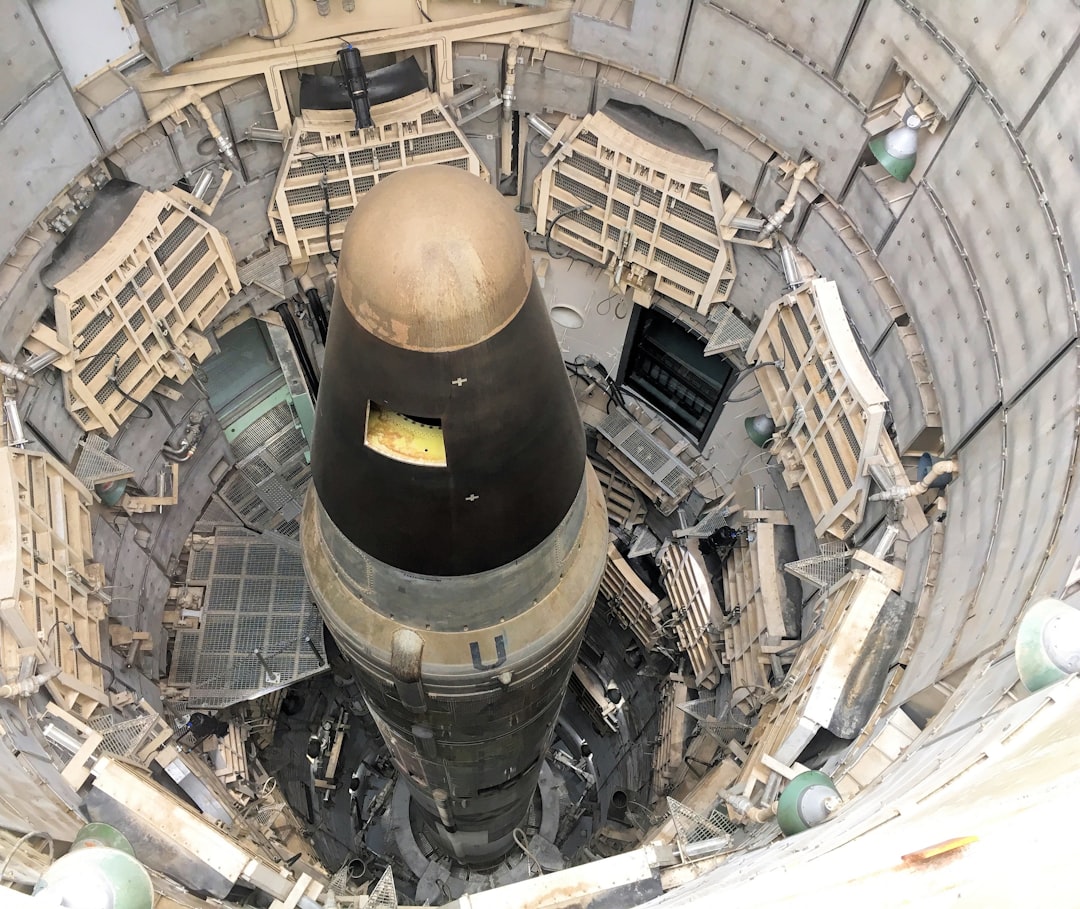As humanity continues to explore the cosmos, the potential for conflict in space has become an increasingly pressing concern. The need for nuclear disarmament in this vast frontier is underscored by the growing militarization of space and the potential for catastrophic consequences should nuclear weapons be deployed beyond Earth’s atmosphere. The stakes are high; the deployment of nuclear weapons in space could lead to an arms race that not only threatens global security but also jeopardizes the peaceful exploration of outer space.
The international community must recognize that the preservation of space as a domain for peaceful purposes is paramount, necessitating urgent action towards disarmament. Moreover, the implications of nuclear weapons in space extend beyond immediate military concerns. The environmental impact of nuclear detonations, even in the vacuum of space, could have far-reaching consequences for Earth and its inhabitants.
The debris generated from such explosions could create hazardous conditions for satellites and other spacecraft, disrupting communication systems and scientific research. Thus, the call for nuclear disarmament in space is not merely a matter of political strategy; it is a crucial step towards ensuring the sustainability of space exploration and protecting the future of humanity.
Key Takeaways
- The need for nuclear disarmament in space is crucial to prevent the weaponization of outer space and ensure the peaceful use of space for all nations.
- The dangers of nuclear weapons in space include the potential for accidental detonation, space debris, and the escalation of international tensions.
- International efforts to advocate for nuclear disarmament in space involve diplomatic negotiations, treaties, and resolutions at the United Nations and other international forums.
- Space agencies play a key role in promoting nuclear disarmament by developing technologies for monitoring and verifying disarmament efforts, and by adhering to international agreements.
- The legal and ethical implications of nuclear weapons in space raise concerns about the violation of international law, the risk to civilian populations, and the potential for environmental damage.
The Dangers of Nuclear Weapons in Space
The dangers posed by nuclear weapons in space are multifaceted and alarming. First and foremost, the potential for accidental detonation or miscalculation during a conflict could lead to catastrophic outcomes. Unlike terrestrial warfare, where geographical boundaries can provide some level of containment, a nuclear incident in space could have global repercussions.
The fallout from such an event would not be limited to the immediate vicinity; it could disrupt satellite networks that are essential for navigation, communication, and weather forecasting, thereby affecting millions of lives on Earth. Additionally, the presence of nuclear weapons in space raises significant ethical questions about the militarization of an environment that has historically been viewed as a realm for peaceful exploration. The idea of waging war in space challenges fundamental principles of international law and human rights.
As nations develop capabilities to deploy nuclear weapons beyond Earth, they risk undermining decades of progress made in arms control and disarmament efforts. The specter of a new arms race in space threatens not only national security but also the very fabric of international cooperation that has allowed humanity to reach for the stars.
International Efforts to Advocate for Nuclear Disarmament in Space

In response to the growing concerns surrounding nuclear weapons in space, various international efforts have emerged to advocate for disarmament. Organizations such as the United Nations Office for Disarmament Affairs (UNODA) have been at the forefront of promoting dialogue among nations regarding the need for a legally binding framework to prevent the militarization of outer space. Through conferences and discussions, these organizations aim to foster a collective understanding of the risks associated with nuclear weapons in space and encourage countries to commit to disarmament initiatives.
Furthermore, treaties such as the Outer Space Treaty of 1967 serve as foundational documents in the quest for disarmament. This treaty explicitly prohibits the placement of nuclear weapons in orbit and emphasizes that space should be used for peaceful purposes. However, despite its significance, enforcement mechanisms remain weak, and many nations continue to develop military capabilities that could potentially include nuclear weapons in space.
Thus, while international efforts are underway, there is an urgent need for stronger commitments and more robust frameworks to ensure compliance and accountability among nations.
The Role of Space Agencies in Promoting Nuclear Disarmament
| Space Agency | Initiatives | Impact |
|---|---|---|
| NASA | Monitoring nuclear activities from space | Provides valuable data for nuclear disarmament efforts |
| ESA | Developing satellite technology for nuclear verification | Enhances transparency and trust in disarmament processes |
| Roscosmos | Collaborating with international partners on space-based monitoring | Contributes to global efforts for nuclear non-proliferation |
Space agencies around the world play a crucial role in promoting nuclear disarmament through their research, advocacy, and collaborative efforts. Agencies such as NASA, ESA (European Space Agency), and Roscosmos have the unique ability to influence public perception and policy regarding the use of space for peaceful purposes. By prioritizing scientific exploration and international cooperation over military applications, these agencies can set a precedent that underscores the importance of disarmament.
Moreover, space agencies can engage in partnerships with governments and non-governmental organizations to raise awareness about the dangers of nuclear weapons in space. Through educational programs, public outreach campaigns, and collaborative research initiatives, they can foster a culture of peace and cooperation that transcends national borders. By leveraging their expertise and resources, space agencies can contribute significantly to global efforts aimed at achieving nuclear disarmament in outer space.
The Legal and Ethical Implications of Nuclear Weapons in Space
The legal landscape surrounding nuclear weapons in space is complex and fraught with challenges. While existing treaties like the Outer Space Treaty provide a framework for preventing the militarization of space, they often lack enforceable mechanisms to hold nations accountable for violations. This legal ambiguity creates opportunities for states to develop military capabilities under the guise of national security while undermining global disarmament efforts.
As such, there is an urgent need for new legal instruments that specifically address the unique challenges posed by nuclear weapons in outer space. Ethically, the deployment of nuclear weapons in space raises profound questions about humanity’s responsibility to future generations. The potential consequences of such actions extend far beyond immediate military objectives; they threaten the very essence of human existence on Earth and our ability to explore the cosmos responsibly.
As nations grapple with these ethical dilemmas, it becomes increasingly important to engage in dialogue that emphasizes shared values and collective responsibility towards maintaining peace in outer space.
Challenges and Obstacles in Achieving Nuclear Disarmament in Space

Achieving nuclear disarmament in space is fraught with challenges that complicate international cooperation. One significant obstacle is the lack of trust among nations, particularly among those with established military capabilities. Historical tensions and rivalries can hinder meaningful dialogue and collaboration on disarmament initiatives.
Additionally, some countries may perceive their military capabilities as essential to their national security, making them reluctant to engage in disarmament discussions. Another challenge lies in technological advancements that blur the lines between civilian and military applications in space. As nations develop dual-use technologies that can serve both peaceful and military purposes, it becomes increasingly difficult to establish clear guidelines for disarmament.
This ambiguity can lead to misunderstandings and miscalculations that exacerbate tensions among nations. To overcome these challenges, it is essential for countries to prioritize transparency and communication while fostering an environment conducive to trust-building measures.
The Potential for Space-based Technologies to Monitor and Enforce Nuclear Disarmament
The advent of advanced space-based technologies presents both opportunities and challenges for monitoring and enforcing nuclear disarmament. Satellites equipped with sophisticated sensors can play a pivotal role in verifying compliance with disarmament agreements by providing real-time data on military activities related to nuclear weapons. These technologies can enhance transparency among nations and serve as a deterrent against potential violations.
However, the use of such technologies also raises concerns about privacy and sovereignty. Nations may be apprehensive about allowing external monitoring of their military activities, fearing that it could compromise their national security interests. Striking a balance between effective monitoring and respecting national sovereignty will be crucial in leveraging these technologies for disarmament purposes.
Ultimately, fostering international cooperation on technology sharing and verification mechanisms will be essential for building trust among nations.
The Role of Civil Society in Advocating for Nuclear Disarmament in Space
Civil society organizations play a vital role in advocating for nuclear disarmament in space by raising awareness, mobilizing public opinion, and holding governments accountable for their actions. Grassroots movements focused on peace and disarmament can amplify voices calling for action against the militarization of outer space. Through campaigns, educational initiatives, and public demonstrations, these organizations can engage citizens and encourage them to advocate for policies that prioritize peace over militarization.
Moreover, civil society can serve as a bridge between governments and the public by facilitating dialogue on disarmament issues. By bringing together diverse stakeholders—including scientists, policymakers, activists, and community members—civil society organizations can foster collaborative approaches to addressing the challenges posed by nuclear weapons in space. Their efforts are essential in creating a culture of accountability and transparency that encourages governments to prioritize disarmament initiatives.
The Importance of Diplomacy and Negotiation in Space Nuclear Disarmament
Diplomacy plays a critical role in advancing nuclear disarmament efforts in space. Engaging in constructive dialogue among nations is essential for building consensus on disarmament initiatives and addressing concerns related to national security. Diplomatic negotiations can help establish frameworks that promote transparency, trust-building measures, and verification mechanisms necessary for effective disarmament.
Furthermore, multilateral forums such as the Conference on Disarmament provide platforms for nations to discuss their perspectives on nuclear weapons in space openly. These diplomatic channels allow countries to articulate their security concerns while exploring avenues for cooperation on disarmament initiatives. By prioritizing diplomacy over confrontation, nations can work towards establishing a shared vision for a future free from nuclear threats in outer space.
The Role of Education and Awareness in Promoting Nuclear Disarmament in Space
Education plays a pivotal role in promoting awareness about the dangers associated with nuclear weapons in space. By integrating discussions about disarmament into educational curricula at all levels—ranging from primary schools to universities—society can cultivate a generation that understands the importance of peace and cooperation in outer space exploration. Educational initiatives can empower individuals to advocate for policies that prioritize disarmament while fostering critical thinking about complex global issues.
Moreover, public awareness campaigns can help demystify the complexities surrounding nuclear weapons in space. Engaging media outlets, social platforms, and community organizations can amplify messages advocating for disarmament while encouraging public discourse on this critical issue. By fostering an informed citizenry that actively participates in discussions about nuclear disarmament, societies can create pressure on governments to prioritize peaceful exploration over militarization.
The Future of Nuclear Disarmament in Space: Opportunities and Threats
The future of nuclear disarmament in space presents both opportunities and threats as humanity navigates an increasingly complex geopolitical landscape. On one hand, advancements in technology offer new avenues for monitoring compliance with disarmament agreements while fostering international cooperation among nations committed to peace. Collaborative efforts among countries can lead to innovative solutions that prioritize sustainable exploration while mitigating risks associated with militarization.
Conversely, emerging threats—such as rising tensions among major powers—pose significant challenges to achieving meaningful progress on disarmament initiatives. As nations continue to develop military capabilities that extend into outer space, the risk of conflict escalates, potentially undermining decades of progress made towards arms control. To navigate this precarious landscape successfully, it is imperative for governments, civil society organizations, and international bodies to work collaboratively towards establishing frameworks that prioritize peace while addressing legitimate security concerns.
In conclusion, while significant challenges remain on the path toward achieving nuclear disarmament in space, there exists a collective responsibility among nations to prioritize peace over militarization. Through diplomacy, education, technological innovation, and active engagement from civil society, humanity can work towards ensuring that outer space remains a domain dedicated to exploration rather than conflict—a legacy worth striving for as we venture into the cosmos together.
In recent years, the conversation around nuclear disarmament has increasingly intersected with space advocacy, as experts emphasize the importance of preventing the militarization of outer space. An insightful article on this topic can be found on Hey Did You Know This, which explores the potential consequences of nuclear weapons in space and the urgent need for international cooperation to ensure a peaceful extraterrestrial environment.
